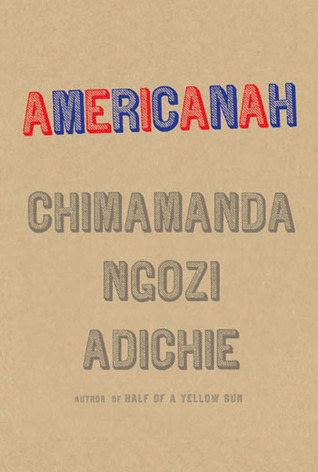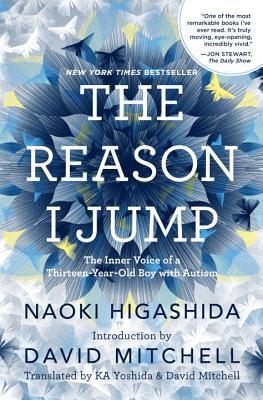Sunday, August 3, 2014
My Miserable Lonely Lesbian Pregnancy
#1100
Title: My Miserable Lonely Lesbian Pregnancy
Author: Andrea Askowitz
Year: 2008
Publisher: Cleis Press
Pages: 256
It was disheartening to finish one book with a self-absorbed, relationally unpleasant narrator and then wind up with another. Askowitz is mostly irritable and not funny. For an amusing account of a similar life circumstance, read Sloan's Knock Yourself Up: No Man? No Problem: A Tell-All Guide to Becoming a Single Mom.
Americanah
#1099
Title: Americanah
Author: Chimamanda Ngozi Adichie
Year: 2013
Publisher: Knopf
Pages: 477
I liked Half of a Yellow Sun, where I felt a lot of empathy for the characters. Not so this novel, which has a tremendous Mary Sue flavor, which I don't mind much, and a sweeping cast of unpleasant and superficial characters, which does. I kept waiting for the protagonist to become aware that everyone around her, not just white women, was racist and made assumptions, requiring her to rethink her own relationship to race issues; or that she herself was judgmental and interpersonally unpleasant, or that she herself was responsible for the destruction of a certain number of relationships. Nope. None of that happens. Instead, we close with a purportedly romantic ending in which she is about to destroy the only decent character in this long, pointless novel. What I take from this is that Ifemelu has undiagnosed borderline personality disorder. Steer clear of her. She is dangerous. Yet to hint at this in the world of this novel (and, I expect, the world of book reviewing), is to be seen as racist. Let me be very clear: Ifemelu's views on race and race relations, many of which I share, are not what I'm talking about. I'm talking about her depiction as a nasty, passive-aggressive, self-absorbed person.
Goodreads reviewer Emma Deplores Goodreads Censorship, whose longer review at https://www.goodreads.com/book/show/15796700-americanah is well worth reading, sums it up better than I can:
"And perhaps because Ifemelu's primary role is as an observer who blogs about other people's foibles (actual blog entries are scattered liberally throughout), she mostly comes across as self-righteous and judgmental. When she does act, it's usually to be unpleasant: she passive-aggressively starts fights with her boyfriends, writes personal blog posts about friends without their permission, and when a co-worker criticizes her behavior, her response is to call the co-worker ugly. Ifemelu seems to tolerate other people in her life only insofar as they don't inconvenience her (and she's easily annoyed, by everything from her parents daring to visit her to a boyfriend moving on with his life after she cuts him off), and she radiates disdain for everyone she meets, even those closest to her. Normally I'm a fan of flawed female protagonists, but Ifemelu is neither interesting nor admirable, drifting through a story that seems to take readers' identification with her for granted, with little narrative awareness of her flaws."It's too bad that this negative and diminishing story has been awarded and optioned for film, while the more nuanced and interesting Half of a Yellow Sun was not. Americanah, which features sometimes insightful but generally nasty blog posts, reads like a nasty blog post. Perhaps that's what makes a producer think people will want to see it, but I won't.
Very disappointing, and enworstened by the audiobook narrator's foul and irritating attempts to voice most of the white women.
The Bible: A Biography
#1098
Title: The Bible: A Biography
Author: Karen Armstrong
Year: 2007
Publisher: Atlantic Monthly Press
Pages: 302
Armstrong is a clear and agreeable writer, though I'd wish for more citations and, sometimes, explanatory material for readers less steeped in the Christian tradition.
Here, Armstrong's actual and central contribution is to encourage the reader to focus less on the content of sacred texts and more on the different ways of understanding these contents and the different ends that these ways of reading have served.
Armstrong reminds us that textual literalism is not an ancient tradition, but a more recent and "scientific" one. As she elaborates more thoroughly elsewhere, "truth" as we understand it (historical accuracy, and attempt at an objective perspective, documentary narrative) is different from the "truth" of many historical and sacred texts and biographies. I recommend her Buddha for an in-depth exploration of this idea.
Title: The Bible: A Biography
Author: Karen Armstrong
Year: 2007
Publisher: Atlantic Monthly Press
Pages: 302
Armstrong is a clear and agreeable writer, though I'd wish for more citations and, sometimes, explanatory material for readers less steeped in the Christian tradition.
Here, Armstrong's actual and central contribution is to encourage the reader to focus less on the content of sacred texts and more on the different ways of understanding these contents and the different ends that these ways of reading have served.
Armstrong reminds us that textual literalism is not an ancient tradition, but a more recent and "scientific" one. As she elaborates more thoroughly elsewhere, "truth" as we understand it (historical accuracy, and attempt at an objective perspective, documentary narrative) is different from the "truth" of many historical and sacred texts and biographies. I recommend her Buddha for an in-depth exploration of this idea.
Can't We Talk About Something More Pleasant? A Memoir
#1097
Title: Can't We Talk about Something More Pleasant? A Memoir
Author: Roz Chast
Year: 2014
Publisher: Bloomsbury USA
Pages: 240
Roz Chast joins the ranks of those who demonstrate the capacity of cartoons and graphic memoirs or novels to provide a sophisticated, poignant story.
Can't We Talk about Something More Pleasant?chronicles the decline and death of Chast's parents. For anyone who has been through this or is close enough to experience fearful anticipation of the lead-up, loss, and aftermath, this anxious, ruminative, funny, freaked-out, overburdened account will feel by turns familiar, squirmily horrible, and perhaps, ultimately reassuring in the existential companionship it provides.
It's probably too much for someone with a very recent loss, but captures well the concern, ambivalence, relief, loss, and broad spectrum of this particular grief process. And it is funny, though sometimes more grimly absurd than slapstick.
Title: Can't We Talk about Something More Pleasant? A Memoir
Author: Roz Chast
Year: 2014
Publisher: Bloomsbury USA
Pages: 240
Roz Chast joins the ranks of those who demonstrate the capacity of cartoons and graphic memoirs or novels to provide a sophisticated, poignant story.
Can't We Talk about Something More Pleasant?chronicles the decline and death of Chast's parents. For anyone who has been through this or is close enough to experience fearful anticipation of the lead-up, loss, and aftermath, this anxious, ruminative, funny, freaked-out, overburdened account will feel by turns familiar, squirmily horrible, and perhaps, ultimately reassuring in the existential companionship it provides.
It's probably too much for someone with a very recent loss, but captures well the concern, ambivalence, relief, loss, and broad spectrum of this particular grief process. And it is funny, though sometimes more grimly absurd than slapstick.
The Reason I Jump: The Inner Voice of a Thirteen-Year-Old Boy with Autism
#1096
Title: The Reason I Jump: The Inner Voice of a Thirteen-Year-Old Boy with Autism
Author: Naoki Higashida
Translators: KA Yoshida and David Mitchell
Year: 2013
Publisher: Random House
Pages: 176
Caveat emptor. This is one of only a handful of books I've ever returned. It is deceptive.
This is a failure for a couple of reasons. First, it's really unclear (despite a certain amount of research) whether Higashida, a Japanese teen with autism, is doing his own writing or "facilitated communication," which is a dubious, Ouija-like practice without much scientific credibility. Second, Mitchell has, by his own admission, not just translated but stylized. This makes it difficult for the reader to evaluate Higashida's own actual language, associations, and thought processes (if, given the facilitation, this is even possible). Third, it is a highly romanticized and thus suspect vision of autism, in the school of "He's in there, he just can't get out!" I work indirectly with many families with an autistic child, and while the children certainly have personalities and, through words or behaviors, their own voices, they sound nothing like this. Fourth, there is a trend toward narratives purporting to be by children (like I Am Nujood, Age 10 and Divorced) that clearly are written or heavily tampered with by adults, putting them in some ways into the A Million Little Pieces and Go Ask Alice category of fake memoir, often to prove a moral point. Fifth, even if this were an entirely accurate translation and completely represented the putative author's beliefs and experience, it is sentimental treacle. Sixth, given the high likelihood that it's not accurate or representative, and the high star ratings it gets for its sentimental and treacly nature, it is dangerous because it so grossly misrepresents the experience of people with profound autism. Let's not forget that glurge sells and gets high ratings.
Many critical reviews, including those by parents of children with autism spectrum disorders, abound online.
My Promised Land: The Triumph and Tragedy of Israel
#1095
Title: My Promised Land: The Triumph and Tragedy of Israel
Author: Ari Shavit
Year: 2013
Publisher: Spiegel & Grau
Pages: 464
Shavit examines the history and (as he understands them) beliefs of historical and contemporary Zionists in the context of Israeli-Arab/Palestinian relations.
It's somewhat hard for me to evaluate, as it sometimes seems that Shavit is, in Jewish quasi-legal fashion, arguing two or more perspectives simultaneously ("Two Jews, three opinions," though in this case, it's just one Jew generating multiple perspectives). I'm not sure that this doesn't work, just that it can be hard to know at times where, or if, he lands. The historical segments were interesting, the interviews often argumentative, and the conclusion ultimately inconclusive. A good essay to read during the current heightened conflict.
Title: My Promised Land: The Triumph and Tragedy of Israel
Author: Ari Shavit
Year: 2013
Publisher: Spiegel & Grau
Pages: 464
Shavit examines the history and (as he understands them) beliefs of historical and contemporary Zionists in the context of Israeli-Arab/Palestinian relations.
It's somewhat hard for me to evaluate, as it sometimes seems that Shavit is, in Jewish quasi-legal fashion, arguing two or more perspectives simultaneously ("Two Jews, three opinions," though in this case, it's just one Jew generating multiple perspectives). I'm not sure that this doesn't work, just that it can be hard to know at times where, or if, he lands. The historical segments were interesting, the interviews often argumentative, and the conclusion ultimately inconclusive. A good essay to read during the current heightened conflict.
In the Time of the Butterflies
#1094
Title: In the Time of the Butterflies
Author: Julia Álvarez
Year: 1994/1995
Publisher: Plume
Pages: 325
A useful historical-ish (maybe: historically-based) novel to follow up on The Brief Wondrous Life of Oscar Wao (which I enjoyed more but which, in its frenzy and pastiche, doesn't lend itself well to a linear understanding of the Trujillo regime). The "butterflies" are the Mirabal sisters, active in the anti-Trujillo underground, three of whom were assassinated and who even now symbolize Dominican freedom.
Álvarez tells their fictionalized story through the alternating voices of the sisters over time. She does a good job of differentiating their voices and preoccupations as they mature.
Title: In the Time of the Butterflies
Author: Julia Álvarez
Year: 1994/1995
Publisher: Plume
Pages: 325
A useful historical-ish (maybe: historically-based) novel to follow up on The Brief Wondrous Life of Oscar Wao (which I enjoyed more but which, in its frenzy and pastiche, doesn't lend itself well to a linear understanding of the Trujillo regime). The "butterflies" are the Mirabal sisters, active in the anti-Trujillo underground, three of whom were assassinated and who even now symbolize Dominican freedom.
Álvarez tells their fictionalized story through the alternating voices of the sisters over time. She does a good job of differentiating their voices and preoccupations as they mature.
Subscribe to:
Posts (Atom)







